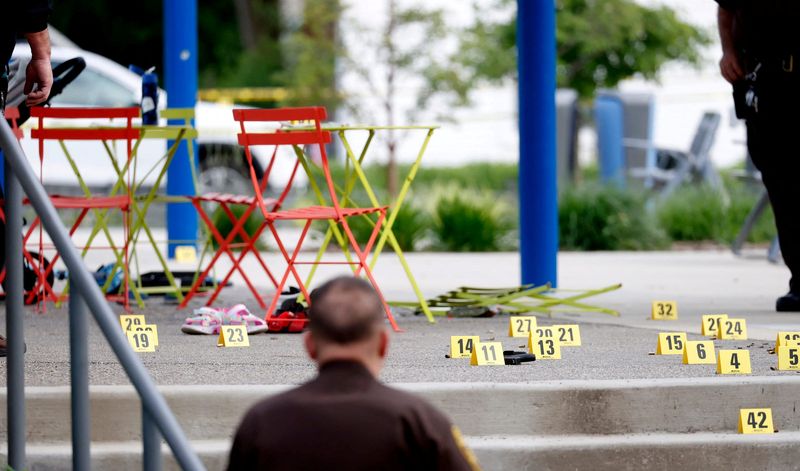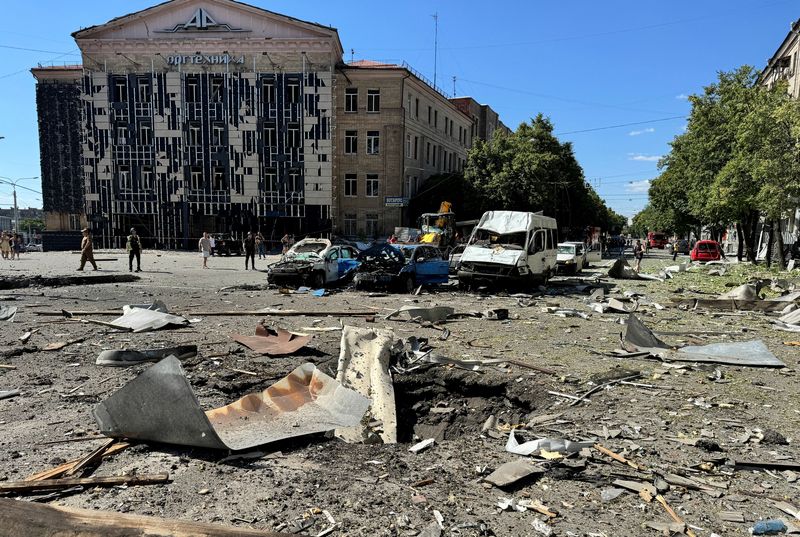The remaking of post-industrial Manchester ranks among the most remarkable English economic stories of recent decades. Sir Howard Bernstein was its chief author.
As chief executive of Manchester council, Bernstein, who died on Saturday aged 71 after a short illness, spearheaded a generation of imaginative civic leadership, providing a template for other towns and cities seeking to shake off the blight of 1970s and 1980s decline.
Bernstein’s reach and reputation extended well beyond that of a conventional town hall official and he was described by former chancellor George Osborne as “the star of British local government”. A consummate fixer and dealmaker, his relentless pragmatism took him into any realm he deemed opportune, from the corridors of Whitehall to the palaces of Middle Eastern sheikhs, in later years usually sporting a trademark scarf and sovereign rings.
Bernstein’s singular ability to cajole, persuade and adapt would ultimately change the face of his city.
Born in April 1953 to Jewish parents in the multicultural north Manchester suburb of Cheetham Hill, Bernstein’s path to the top of English civic leadership was rare then and even rarer now. Joining the town hall straight out of school in 1971 as a junior clerk, he served in its neo-gothic environs for nearly half a century, rising up the ranks to become chief executive between 1998 and 2017.
His early years in the town hall were formative. By the end of the decade, Manchester and its surrounding towns were losing 121 manufacturing jobs every working day and the conurbation’s raison d’être was unclear. “We’d just lost our way,” Bernstein said.
By the mid-1980s, Manchester’s political leadership had been replaced by a new generation of Labour councillors, impatient for change. The city’s leaders, first under Graham Stringer and later Richard Leese, concluded that pragmatism — including dialogue with their Conservative opponents in Westminster — was essential to economic revival.
Bernstein’s skills proved critical. The 1986 acquisition of Manchester airport by the conurbation’s 10 councils was spearheaded by the young officer, still in his early 30s. The early-90s rebuild of the inner-city slums in Hulme, a project backed by then-Conservative minister Michael Heseltine, came to be seen as one of Europe’s foremost urban regeneration successes. Bernstein called it one of his proudest achievements.
By the time an IRA bomb devastated Manchester’s central business district in 1996, Bernstein — and Leese, who had taken over the political reins a few days before the explosion, the two men forming a partnership that would endure for 20 years — was able to put Hulme’s lessons to good use. Always keen to move forward, Bernstein tended not to talk extensively about the rebuild but admitted in 2017 that piecing together the necessary property deals had represented his “biggest intellectual challenge”.
Bernstein went on to help secure not only the 2002 Commonwealth Games, but its legacy, too, negotiating his beloved Manchester City’s move to the stadium built for the games. When the football club was bought by Sheikh Mansour bin Zayed Al Nahyan of the United Arab Emirates, Bernstein used Manchester City as an anchor for the regeneration of the surrounding post-industrial area.
His relentless pursuit of delivery inspired respect, confidence and some measure of awe across sectors. Knighted in 2003 for his services to the city, his message to the private sector and government alike was the same: Manchester was open for business.
Not every gamble paid off. He admitted an attempt to introduce a congestion charge in a bid to raise public transport investment — a move rejected by referendum in 2008 — had misread the room. During the austerity years that followed 2010, meanwhile, the city’s children’s department failed and homelessness soared.
Bernstein maintained, nevertheless, that reviving Manchester’s economy was critical to the fortunes of the city’s poor. As Osborne settled into the Treasury, Bernstein helped convince him of the untapped economic opportunity presented by northern England, securing for Greater Manchester the first English devolution deal outside of London in 2014.
By the time he retired, much of Manchester looked dramatically different to the post-industrial wasteland that formed the backdrop to Bernstein’s early career. Foreign investment poured into the city centre, the population boomed and the conurbation showed early signs of starting to close its productivity gap with London.
When he was asked at his retirement how he managed to persuade people to go along with his ideas, Bernstein was characteristically forthright.
“I put the city first,” he said. “I make clear if you don’t want to do it, make way for somebody who does.”
Bernstein lived a few miles from where he was born, in Prestwich, Bury, until his death. He leaves behind his wife, Vanessa, two children and three stepchildren.














































